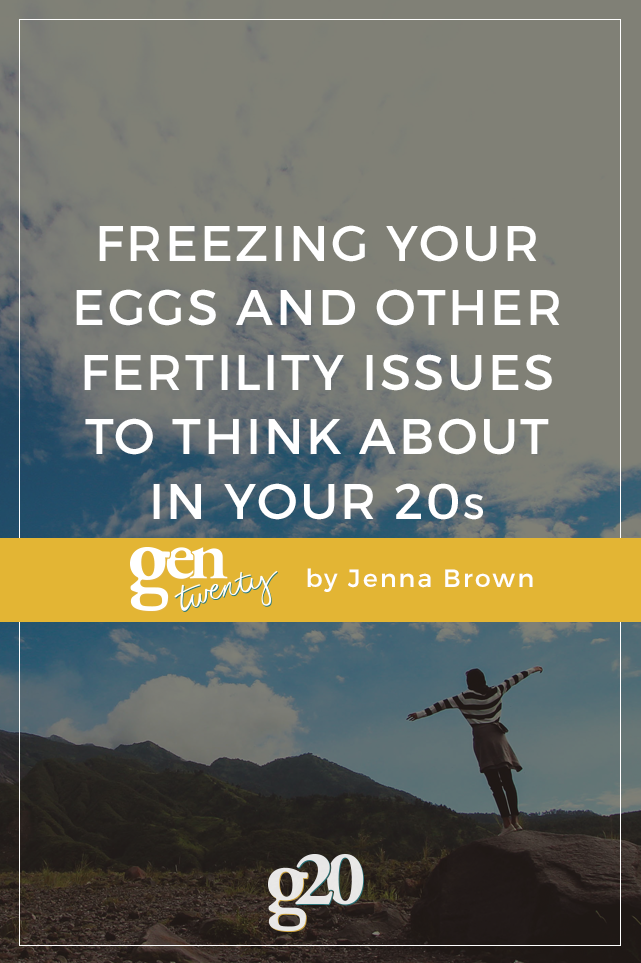This post is featured on behalf of Jenna Brown.

Let’s be completely honest: nobody enjoys their menstrual cycle. The hormone fluctuations, the muscle cramps, that weird icepick-up-the-posterior feeling that stabs at us randomly during flow days and, of course, the worry about potential unplanned pregnancy–it is the worst part of being in possession of a uterus. Still, when our cycles stop functioning properly or stop altogether–especially if we are still in our twenties and thirties–that is a cause for alarm.
For women in their twenties, premature ovarian failure is relatively rare–it only affects around one in a thousand women. After the age of thirty, however, the chances of going into premature menopause become much higher–around one in a hundred women are affected.
When the diagnosis is first handed down, it can feel devastating–particularly for women who were hoping to have children. And it is natural to panic for a little while. But rest assured: you do not have to go gently into that good night. There are steps you can take to keep your body healthy and your fertility intact.
Preserving Your Eggs
The first option that many women explore, particularly those concerned with having biological children, is the preservation of their eggs. There are two ways to approach this option. The first is the freezing of the eggs themselves before they are fertilized.
The other is to have them fertilized and then freeze the embryos. Most doctors and specialists will encourage patients to explore egg-based biobanking because embryos aren’t as likely to survive the freezing process. Make no mistake: many embryos do survive but eggs are hardier and better able to withstand the freezing process.
Hormone Replacement Therapy
Freezing eggs or embryos isn’t your only option if you want to be able to conceive naturally. Another option–and one that has had tremendous success–is hormone replacement therapy.
Hormone replacement therapy (HRT) is beneficial for many other reasons as well. Women who undergo hormone replacement therapy as a treatment for premature ovarian failure or premature menopause see their likelihood of cardiac issues and bone fractures return to the normal range for women their age. For women under forty, doing hormone replacement therapy until the age of 50 (the average age for menopause) is safe and the most commonly recommended form of treatment.
Besides HRT, some women opt for bioidentical hormone replacement therapy (BHRT) as an alternative that involves the use of hormones that are structurally identical to those naturally produced by the body, offering a personalized approach to managing hormonal imbalances and menopausal symptoms. In recent years, telemedicine solutions have further expanded accessibility to hormone replacement therapy, allowing women to consult with healthcare providers conveniently and monitor their treatment progress from the comfort of their own homes.
Vitamins
In addition to fertility issues, it is important for women experiencing premature menopause to get enough calcium and vitamin D. A body going through (and that has already gone through) menopause has a harder time absorbing calcium and bone strength and density declines rapidly.
It’s possible to get a fair amount of both of these nutrients through a healthy diet, but you should definitely talk to your doctor about supplements and make sure to get your levels tested regularly. The last thing you want to have to deal with is osteoporosis!
Mental Health
Mental and emotional health must also be addressed. The mental and emotional impact of premature menopause and premature ovarian failure is immense. This isn’t just because the loss of potential fertility is difficult for many women to deal with (even those who do not want to become parents).
It is also because during and post menopause, the female body goes through a massive number of changes, experiencing symptoms like hot flashes. It is, essentially, like a second puberty. Dealing with these changes, and the fact that now your body thinks it’s “old” and will be aging at a faster rate is difficult for even the most stable and steady of women. Talk with a counselor or therapist about what you’re going through. He or she will be able to provide you with some tools for dealing with the emotional changes that you’re dealing with.
Finally, it is important to understand that premature ovarian failure and premature menopause do not mean that your life is over by any means. You will have to make some dietary and physical changes to keep your body healthy but there is no reason that you shouldn’t look forward to a long and happy life.
